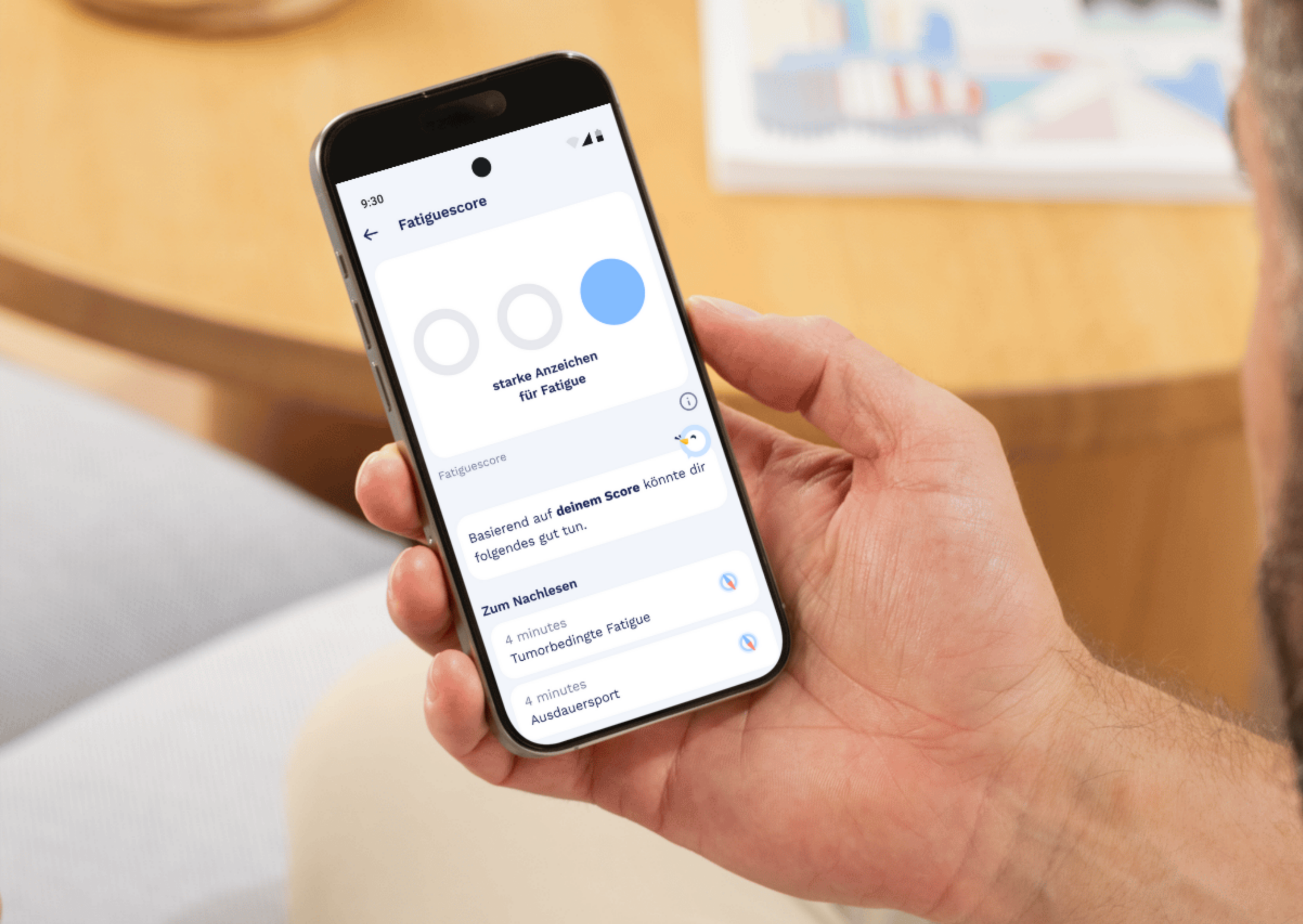FAITH project successfully completed | Reading time: 3 min.
AI supports diagnosis and treatment of fatigue syndrome in cancer patients
Duisburg, November 18 2025 – In the FAITH project, Fraunhofer IMS, together with Fimo Health GmbH, Forschungszentrum Jülich, and Essen University Hospital, has developed an AI-based solution that makes fatigue in cancer patients measurable. Smartwatch data and an app enable objective measurement of exhaustion for the first time and provide personalized recommendations that make everyday life easier and support therapy.

Fatigue is one of the many side effects of cancer and has been difficult to measure until now. In the recently completed research project FAITH (»Fatigue Therapy: AI-supported diagnosis and therapy of tumor-associated fatigue syndrome«), the Fraunhofer Institute for Microelectronic Circuits and Systems IMS, together with partners, has developed an AI-based solution that makes it possible to objectively measure fatigue syndrome in cancer patients using smartwatch data. An app provides those affected with personalized recommendations on exercise and behavior to help them cope better with fatigue. The result is a digital companion that makes everyday life easier, reduces the burden on doctors, and can contribute to an improved quality of life in the long term.
»With our AI models, we want to make fatigue objectively measurable for the first time,« explains Felix Wichum, project manager at Fraunhofer IMS. »This will enable patients and caregivers to better understand the course of the disease and tailor therapies more effectively.«
AI recognizes individual patterns of exhaustion
Fatigue is a severe form of exhaustion that often occurs in connection with cancer: either as a symptom of the disease itself or as a side effect of therapy. The severity varies greatly from person to person and can change significantly depending on how they feel on a given day or the course of the disease. This is where FAITH comes in: The project combines modern AI technologies with wearables and a smartphone app to collect and evaluate vital and behavioral data in real time. This data is used to calculate a so-called fatigue score, which objectively indicates the severity of exhaustion at a given point in time. This measurement, which was previously only possible using subjective questionnaires, enables continuous and precise monitoring of progress.
More self-determination for those affected and new possibilities for care
The app offers users personalized recommendations, such as short exercise sessions, relaxation exercises, or motivational tips. This enables patients to better assess their energy levels and actively respond to symptoms. The digital fatigue score also offers new opportunities for physicians: it facilitates progress monitoring, supports communication with patients, and can serve as an additional metric for therapy decisions in the future. In the long term, health insurance companies could also benefit: objective data on fatigue allows therapies to be monitored more closely and gaps in care to be closed.
Strong partnership for digital health innovations
The FAITH project was funded by the state of North Rhine-Westphalia with around €760,000 as part of the ZukunftBIO.NRW research competition and ran from November 2023 to October 2025 (funding code ZM-2-02B). The consortium leader was Fimo Health GmbH, a Cologne-based start-up that develops digital companions for people with chronic illnesses. While Fraunhofer IMS developed the AI models, Essen University Hospital conducted a clinical study with cancer patients. Forschungszentrum Jülich was responsible for data collection via smartwatches, and Fimo Health was responsible for integrating the data into the app.
How Fimo Health will continue to develop the app specifically designed for FAITH after the end of the project depends on the results of the ongoing evaluation. The company already offers a fatigue app approved as a medical device that is based on subjective self-reports from users – in contrast to the new AI-supported solution, which enables objective recording of vital data for the first time.
»The results of the FAITH project so far are very promising. We have been able to show that our approach is technically and functionally feasible,« says Tim Fellerhoff, research assistant at Fimo Health GmbH. »At the same time, we now know exactly which areas need to be optimized in order to transfer our research results into patient care. Even after the end of the project, we would like to continue this development together with our partners.«